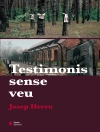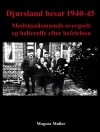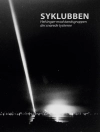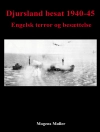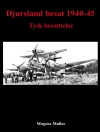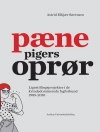2014 was marked by extensive commemoration activities in many parts of the world to the First World War. This book focuses on the relation between global history and social history, highlighting actors and regions, and it systematically engages with the issue of diverse periodizations. In discussing linkages between experience, historiography, and commemoration, the contributions in this volume aim at unsettling the notion of a static and clearly defined »end« of the Great War, a construct mainly based on European developments.
How did the developments which marked the end of the War differ regionally, and how did prisoners of war, demobilized soldiers, women, or children from and in Asia, Africa, and the Middle East perceive and experience the »end«? How did this »end« influence new networks, social movements, society, economic processes, or ecological developments? And how were these questions discussed by contemporaries? Can the loss of »Zeitzeugen« be compensated by the use of electronic and other media? And does this make transnational commemoration easier (or more difficult)? What is written out of historical narratives and what is being (re)discovered?
Table of Content
Contents
About the Book 7
Katrin Bromber, Katharina Lange, Heike Liebau and Anorthe Wetzel
I. New Approaches, Methodologies and Sources
The First World War:
Climax and Crisis of Imperialism 17
Radhika Desai
The First World War and the Global Environment: A View from South Asia 45
Iftekhar Iqbal
Malaria and the Legacy of the First World War in the Ottoman Empire 67
Chris Gratien
East Africa and the Post-War Question of Global Arms Control 85
Felix Brahm
Migration and the Long First World War in Tunisia 109
Christopher Rominger
II. Historiographies and Remembrance
2014: An Invented Anniversary?
Museum Exhibitions on the First World War in Russia 121
Oksana Nagornaja
The First World War in Africa, the Middle East and South Asia: Commemoration, New Research and Debates around the Centennial 137
Katrin Bromber, Katharina Lange and Heike Liebau
‘Carnival of Hell. The First World War and the Senses’: Exhibiting War 175
Franziska Dunkel
The Material Culture of Remembrance and Identity: Imperial War Graves Commission Sites of South Africa, India, Canada and Australia on the Western Front 199
Hanna Smyth
Between Persistent Differences and Vagueness: School Textbook Accounts about the First World War 209
Barbara Christophe and Kerstin Schwedes
The Long End of the Ottoman Empire: Historiographical Discourses on the First World War
in the Consolidating Republic of Turkey 235
Veronika Hager
‘Digging Deep, Crossing Far’. A contemporary art project reaching from the First World War Halfmoon Camp
in Wünsdorf to present-day Lahore 267
Julia Tieke
Editors, Authors and further Contributors 293
About the author
Katrin Bromber, Dr. phil., Katharina Lange, Dr. phil., und Heike Liebau, Dr. phil., sind wissenschaftliche Mitarbeiterinnen am Leibniz- Zentrum Moderner Orient in Berlin. Anorthe Wetzel ist stellvertretende Leiterin des Veranstaltungsreferats der Volkswagen Stiftung in Hannover.


